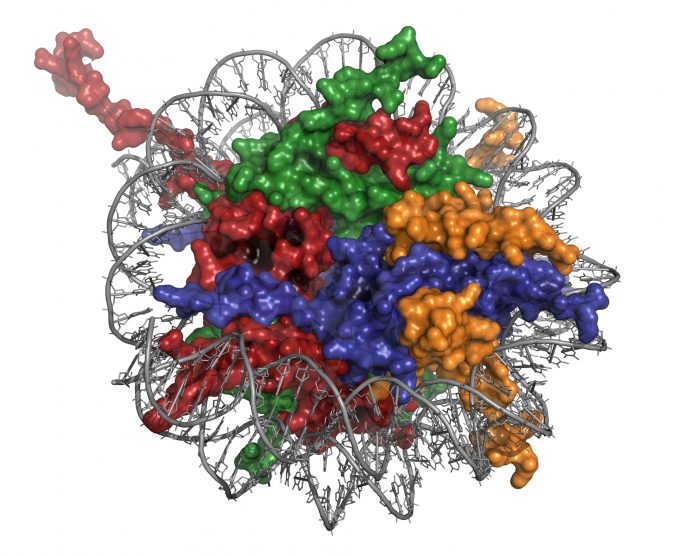
The University of Texas MD Anderson Cancer Center and German biotech Eisbach Bio will collaborate to develop precision cancer drugs to target epigenetic markers and destroy tumors.
The partners will focus on a phenomenon known as synthetic lethality, where a combination of genetic variants, but not one in isolation, will lead to cell death. In this way, cancer cells carrying certain mutations can be targeted without killing off healthy cells.
Vulnerability to synthetic lethality is often due to epigenetic mechanisms that cause changes in gene activity and disruption of chromatin structure. “Modern genomics has revealed synthetic lethal targets in certain cancers with tumor suppressor gene mutations, and Eisbach has developed tools to pinpoint precisely where these targets are vulnerable at the molecular level,” said Adrian Schomburg, CEO of the company, in a press statement.
Synthetic peptides or recombinant histone octamers are commonly used to study epigenetic gene regulation. However, they are not equivalent to the physiological substrate of the epigenetic enzymes, namely, the nucleosome. Eisbach has developed a proprietary assay that uses nucleosomal substrates to bind better to the epigenetic enzymes.
The MD Anderson Cancer Center is one of the best cancer research centers and hospitals in the country and its Therapeutics Discovery division has a long history of developing innovative oncology drugs.
The partners will work together to identify targets and develop small-molecule therapeutics that can stop epigenetic processes in cancer cells, but keep normal tissue healthy.
“Cancers harboring mutations in tumor suppressor genes have been notoriously difficult to treat in the past,” said Timothy Yap, Associate Professor of Investigational Cancer Therapeutics and Medical Director of the Institute for Applied Cancer Science at MD Anderson, part of the team that will collaborate with Eisbach.
“However, growing clinical evidence with PARP inhibitors demonstrates that targeting synthetic lethality is a promising strategy in certain cancer types, and we look forward to continued progress in this space.”
Eisbach is a relative newcomer to the cancer therapeutics space. Founded in 2019, the Munich-based startup primarily focuses on developing new drugs to target molecular vulnerabilities in cancer genomes. It also joined the fight against SARS-CoV-2 last year and is developing antivirals to fight against COVID-19.
“Our platform identifies the unique activation mechanisms of molecular machines essential for cancer cell growth,” said Andreas Ladurner, Chief Scientific Officer at Eisbach. “With this insight, we are able to develop targeted drugs that selectively interfere with the ignition of the engines that tumor cells have come to rely upon. These drugs are safe and selective by design.”
Under the terms of the new agreement, both parties will jointly decide on a development and commercialization pathway for any candidate drugs that show promise in early stage laboratory studies.






![AI Algorithm Could Reduce Breast Cancer Mammogram False Positive Rate The primary goal of the Paradigm Registry is to accelerate tumor profiling based on disease biology. [iStock/LilliDay]](https://www.insideprecisionmedicine.com/wp-content/uploads/2019/01/307-218x150.jpeg)






